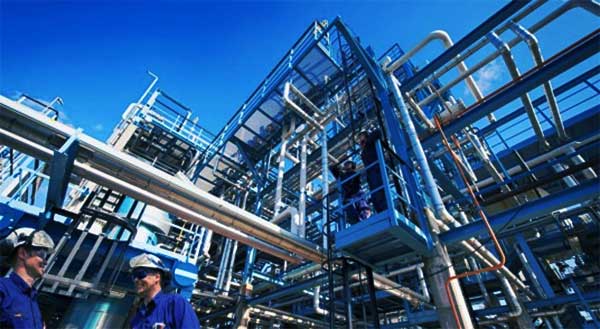
chemical industry illustration
The United States is the most profitable country in the chemical industry. These processed chemicals are sold and traded with other countries worldwide. The chemical industry provides hundreds of thousands of jobs. To keep up with the booming industry, chemical processing plants need the proper equipment that can withstand corrosive chemicals. Rubber lined pipes and other coated equipment play a vital role in these chemical processing plants.
The Process
Rubberizing the insides of pipes is done through a process called pressure vulcanization. This process stretches the rubber material until it is deformed. Once the rubber has returned to its original shape, it is more stretchy and durable. Rubber that has been through this process is so strong that it cannot be eaten away easily by corrosive chemicals.
Why Use Rubber Pipes
Adding rubber coating to the insides of pipes creates an extra layer of protection and allows the outer material to avoid corrosion. This is convenient for pipes being used to transport any liquid substance, especially chemicals that may eat through metal or other materials. Rubberized pipes allow you the peace of mind of knowing that less maintenance is required, since they are much more durable than pipes without rubber coating.
Where to Use Rubber Pipes
Chemical plants as well as any business dealing with a large volume of liquids would benefit from rubber lined pipes. Liquids, especially chemicals, will eventually eat through any container used to store them, as well as any pipes or vessels used to transport them. Rubber lined pipes are used with these tanks and other equipment that come in contact with water or chemicals.
Rubber lined equipment is essential to any business that deals with liquids. These rubber lined products make maintaining the equipment much easier, since it does not have to be done as often as it if the equipment were not protected by rubber lining.